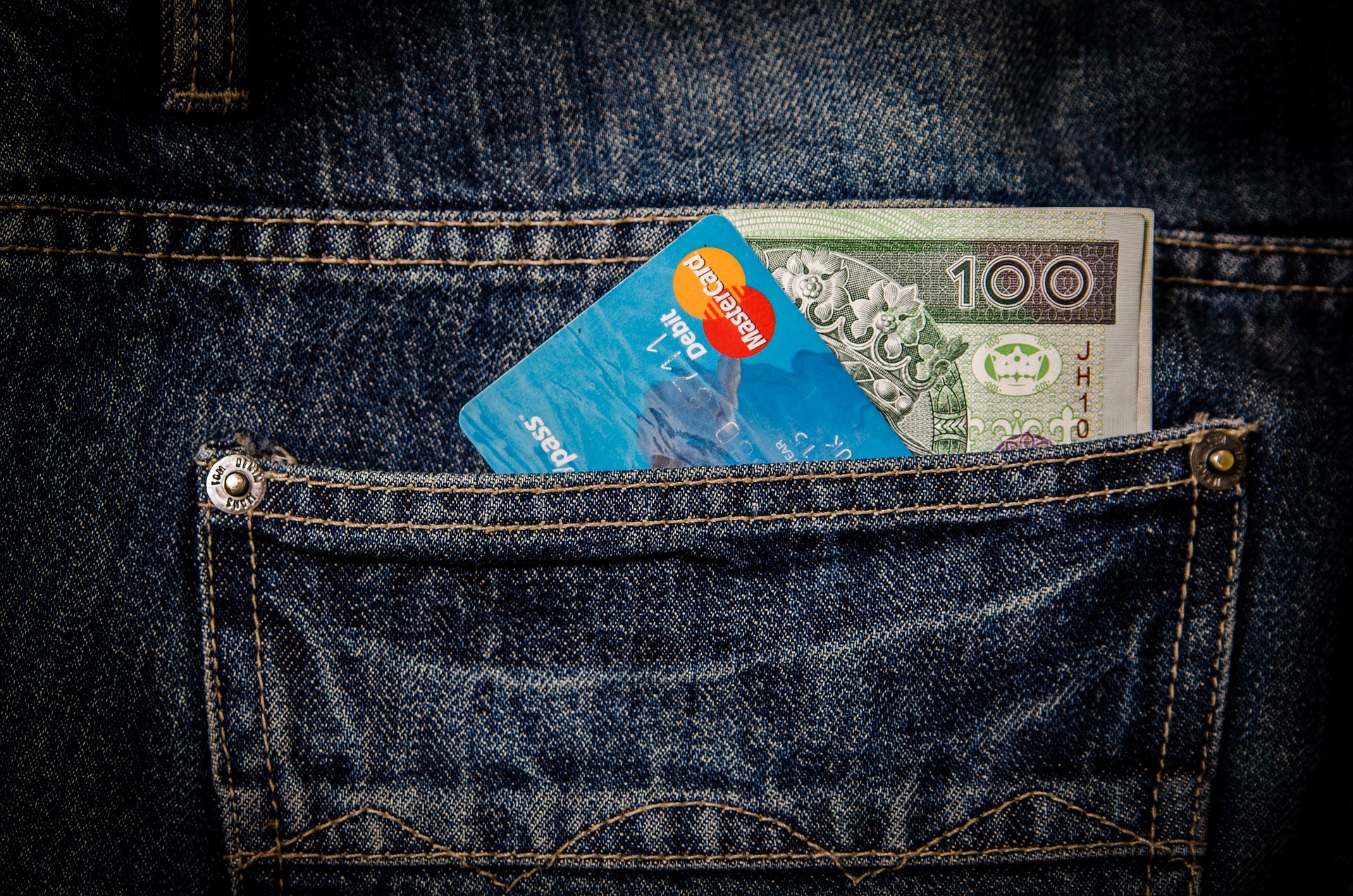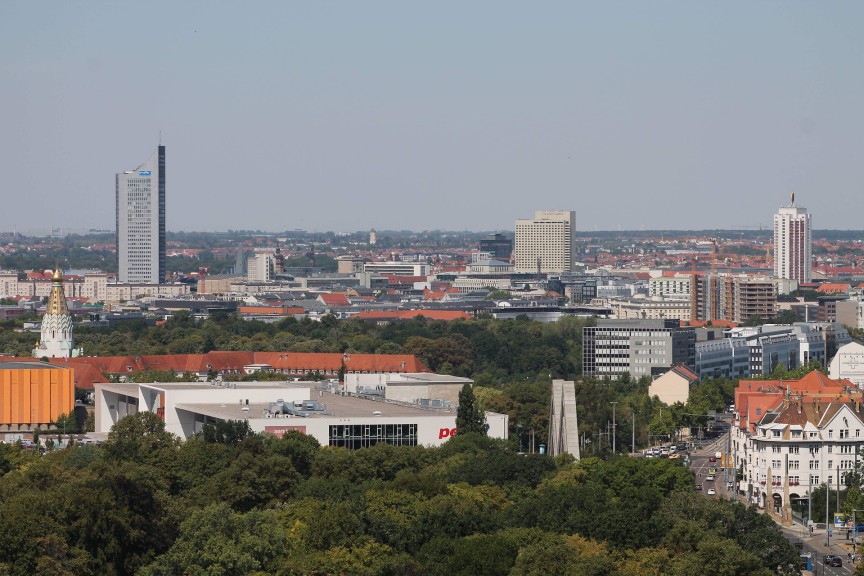This is the first part in the two-part series “Time to invest” by LeipGlo contributor Maximilian Georg on investing in the stock market. The content posted here is for educational purposes only and should never be taken as formal financial advice. The views and opinions expressed in these articles are solely the author’s and do not necessarily reflect those of the Leipzig Glocal. Neither the author nor The Leipzig Glocal are liable for readers’ financial decisions after reading the article.
What do you do with the money you don’t spend? If you just leave it in your bank account, its real value loses to inflation even though its nominal value remains the same. In Germany, the inflation rate between 1979 and 2019 averaged 2.2 % every year. Our own experience confirms that the prices of most goods and services keep rising (including our salaries, which is the price our employer pays for our work). In American movies from the 1950s, you see that in those days you could buy a movie ticket for around 50 cents, and a night at a hotel only cost around 8 dollars.
With an annual inflation of 2.2 %, if you have 1,000 euros in your bank account today, their real value (for which you can buy something) will only be 647 euros in 20 years’ time.
So only two thirds of the original sum. This becomes a real problem at the latest when you retire and your pension does not suffice to maintain your former standard of living (and who can be sure about their pension?). But you may also need savings before, when you have to or want to cover large expenses.
In earlier times, inflation was compensated by the interest your bank paid you on money in your (savings) account.
Since the 2007/08 financial crisis, however, those interest rates have dropped under the rate of inflation. The general level of interest rates is set by the respective central bank.
In response to the crisis, the world’s major central banks (in America, Europe and East Asia) lowered the rates because then bank loans would be cheaper as well, providing companies and consumers with money to keep the economy going.
Once the economy has regained enough strength, the rates may be raised again. On the other hand, if rates are raised too early, another crisis may ensue. For over a decade now, central banks have been fearing that and therefore kept the rates low. An end of this isn’t in sight, as there is always some crisis (such as now the pandemic), and an economy used to “cheap” money is – similar to a drug addict – hard to wean off.
Therefore, forget about leaving your savings with the bank. What else can you do?
Invest in real estate? To purchase an apartment, for example, you need to know a lot about real estate. Then you need a lot of money to purchase and maintain the apartment, and then you need reliable tenants. So better no real estate.

Invest in gold? Gold doesn’t represent a real value. It’s expensive not because people can do much with it (apart from decorating bodies and objects with it), but simply because it’s so rare. Its extraction from the earth causes terrible harm to workers (often children) and the environment. So better no gold.
Invest in cryptocurrencies such as Bitcoin? They don’t represent a real value either but consume huge amounts of energy, which makes them bad for the environment as well. In addition, cryptocurrencies still are a very new, experimental concept with an unclear future in terms of regulation etc., which makes their prices extremely volatile. So better no cryptocurrencies.
Or invest in bonds? These are sold by states and companies when they need money. The money that you pay for a bond is a loan that you grant the seller, who promises to pay you back after a certain period with a certain interest. Today, though, general interest rates are as low as explained. As a result, good ones are offered only by states and companies of limited trustworthiness. So better no bonds.
This leaves us with one alternative: investing in the stock market.
I started doing so in 2018, and haven’t regretted it – but certain things need to be made clear or warned against. In the rest of this article, I will explain why you should invest your money in stocks.
In a subsequent article, Part II of the series, I will explain how to do it.
Investing in the stock market has never been easier than today. With a few clicks, you can open a broker account with the bank of your checking account, another bank or a trading app (make sure of course that your chosen provider is trustworthy). Keeping such a broker account is usually free of charge (at least if you use it regularly). Then the trading can start.
Some may think that buying stocks requires substantial capital. It does not.
Today, broker accounts offer investment plans with a monthly minimum investment of just 25 euros. If the shares of the company or fund you’re investing in cost more, say 500 euros per piece, your first month of investment buys you a 0.05 share (before transaction fees), and when the share’s value rises (or falls), your share of the share rises (or falls) by the same percentage rate as when you own one or many full shares.
Some may also think that the stock market is a casino and that you need to be lucky or an expert to make money there instead of losing it.
The stock market is an extremely complex system, as is the economy in general. When more people decide to buy a stock than people decide to sell it, its value will rise. In the reverse case, it will fall. There are, however, countless factors that can impact the economy and thereby people’s buying decisions. Having said that, some factors will also be ignored by some buyers for lack of information. Moreover, on the stock market as in other areas of life, humans do not always act purely rationally but are often driven by illusions, frenzy, unnecessary doubt, or fear. In short: by psychology, and human (mass) psychology is overwhelmingly complex as well.

Therefore, putting money in the stock market with the expectation of short-term profit is more akin to gambling than to investing, even for the best expert.
You can be lucky, but in many if not most cases, you (and the expert) will lose. In the short run, the market is so volatile that you will most likely miss the right moments to buy and to sell your shares. You will buy them when they are too high/expensive, and sell them when they are too low/cheap. Your money will go to the lucky few who happen to hit the right moments.
Over the course of years or decades, however, it’s practically certain that the stock market, in general, will rise.
The stock market is an essential part of the capitalist world economy. As long as this economy is capitalist, it seeks to grow by definition. And it will succeed in growing as companies grow ever more productive thanks to creativity and technological progress, and as the world’s population keeps growing and/or demands ever more and/or better products. It’s been like that for all of modern history, notwithstanding regular crises and market crashes. The U.S. stock market, for example, rose in 70 % of the years over the last 150 years (!), and in each of them by an average of 8 % (!) – despite two world wars, several “minor” wars, the Cold War, the Great Depression, several other economic and financial crises around the world, etc. After the outbreak of the coronavirus pandemic in March 2020, which made U.S. stocks drop by 25 %, the market recovered within a few months and now it is higher than ever.
Of course, it is absolutely possible that you buy shares of a certain company or fund just before they decline for quite a while, or an entire crash occurs.
Nobody can know whether the next crash will be tomorrow or in ten years. Yet, the longer you hold the shares, the more likely they are to rise above the price at which you first bought them. Hence the famous “Buy-and-hold strategy,” which also saves you a lot of nerves and time: buy shares and don’t bother much about them for the next years, whether they go up or down – what matters to you is their price in five, ten or even more years, when you sell your shares. In addition, that strategy saves you money because every purchase and sale of shares comes with a fee for the provider of your broker account.
While the market rises in general, some stocks rise faster than others, and some will even decline and never recover.
It’s another law of capitalism that companies can fail – because of bad products, bad management or an outdated business model. In the worst case, a respected and seemingly successful company such as Wirecard from Germany, to cite a recent scandal, turns out to be built on fraud and evaporates overnight. If you buy stocks of such a company and the company goes bankrupt, you won’t see your money again.
How to avoid such losses and instead make money in the stock market?
This will be explained in Part II of this article, next week on The Leipzig Glocal!










